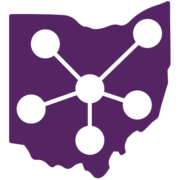Youth Support Person or Support Group
- It is recommended that the youth have a peer support person. The peer support person can help the youth with socialization, problem solving, increasing positive feelings and interactions, help decrease frustration, and reduce regulation difficulties
- Consider connecting the youth to your local Children Services Youth Advisory Board so they can connect the youth to others who are going through what they are experiencing
- Consider connecting the youth to supportive interaction opportunities like Big Brother or Big Sister
- For youth with social skill difficulties, consider finding a youth support group for youth with mood or trauma symptoms
- Find peer support person or youth support group to help with socialization, problem solving, and regulation
- Identify mentors or life coaches
Online Support
- It is recommended to support the youth in connecting with other youth who have had similar life experience. Two resources to do this include Youth Move and Hey, I’m Here
Online Support Resources
The mission of the Resiliency Network is to provide positive connections, support the peer workforce community, and advocate for efficient services and opportunities across systems.
Hey I’m Here is a youth-led community engaged in changing the conversation when it comes to mental wellness and provides a safe digital space for youth to share stories, offer encouragement, and to help others find resources available to them in Ohio.
Ohio Department of Mental Health and Addiction Services
Identify Youth Goals, Explore Motivators, and Build Upon Interests
- Empower the youth to identify activities that are of interest to them and that will encourage self-worth, choice, and control
- Explore motivators with the youth and work with the youth to identify their goals
- Focus on the strengths of the youth to help empower, give hope, and create joy in their life
- Encourage activities the youth enjoys that build on strengths or interests (E.g., participation in sports, working with animals, church choir, cooking or art classes).
- Could also include career development opportunities that focus on the use of his strengths and interests while being sensitive to any support needs. Success in employment has been therapeutic for individuals to feel accomplished and can place effort on engagement in future planning.
- Make sure the youth has some joy in each day
- Encourage youth to associate difficult or non-preferred tasks with positive experiences
Other Youth Support Resources
Visual Support Resources
Adding a visual component to daily routines and schedules can help the youth remember routines and schedule as well as help them to become more independent. There are numerous resources available to help learn about and create visual supports.

Module 7 focuses on structure and visual supports.
National Autistic Society offers a guide that reviews types of visual supports, uses of visual supports, examples of visual supports. Provides ‘Top Tips’ and useful resources.

Do2Learn offers examples and free downloadable for multiple environments
FLASH is a widely used sexual health education curriculum designed to prevent teen pregnancy, STDs, and sexual violence, and to increase knowledge about the reproductive system and puberty. FLASH is available for elementary, middle, high school and special education classrooms. High School FLASH has been proven effective by rigorous evaluation.

ODVN’s purpose is to support and strengthen Ohio’s response to domestic violence through training, public awareness, and technical assistance and to promote social change through the implementation of public or service provided, should be trained in Trauma Informed Care and use a Trauma Informed policy.
Find an ODVN location near you.
Resources for Trauma Informed Care
Youth who have experienced trauma should be provided interventions, instruction, and support that are trauma-informed. This applies to educational settings and especially to behavior support programs or interventions. Several resources to consider:
A resource guide for youth who have experienced, or know someone who has experienced complex trauma. Guide is designed for older youth, adolescents, and young adults to explore the information on their own to help make sense of their experiences and understand themselves better. Clinicians, caregivers, and other adults can use this guide to have conversations with young adults, teens, pre-teens (and even some curious 7-9 year olds).
Wellness Resources
Trauma-informed wellness practices may enhance social-emotional learning, self-soothing skills, and cultivation of a sense of safety for the self.

APSI is a not-for-profit organization that advocates for outcomes that promote dignity, respect, and enhanced quality of life for individual persons with developmental disabilities. They may provide technical assistance and resources that allows the person to maintain a level of decision making and control while providing protection of rights. Individuals may contact APSI to identify a representative payee or someone to help an them manage finances safely.

The CAPS is a tool to help teachers and educational teams to plan and implement a student’s program across the school but may be adapted to plan for success across other environments. The CAPS takes the team through the process of planning goals/objectives to be targeted in each activity of the day, the modifications and accommodations that should be provided to support the student in each activity, the sensory supports to help the student stay engaged, and the communication and social supports that the student needs to be successful. The CAPS model may be used alone or in combination with the Ziggurat Model.
The Comprehensive Autism Planning System (CAPS) for Individuals with Autism Spectrum Disorders and Related Disabilities book by Shawn A. Henry and Brenda Smith Myles is available in the OCALI library.

DRO provides legal advocacy and rights protection to a wide range of people with disabilities. This includes assisting individuals with problems such as abuse, neglect, discrimination, access to assistive technology, special education, housing, employment, community integration, voting and rights protection issues.
This website offers evidence-based, age-appropriate, trauma-informed sexual health education videos on a variety of topics.
Additional Suggested Resources
American Occupational Therapy Association
Every Moment Counts
Description: A tool designed for repeated use by anyone who supports the care and education of Ohio’s Multi System Youth with Intellectual or Developmental Disabilities (IDD).
Reading Recommendations
Wrobel, M. (2003). Taking Care of Myself: A Hygiene, Puberty and Personal Curriculum for Young People with Autism. United Kingdom: Future Horizons, Incorporated.

